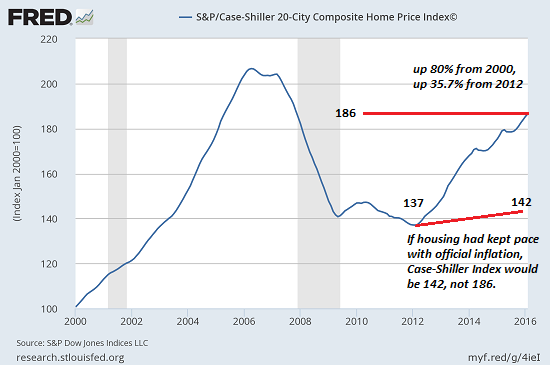The fallacy in this assumption is that homeowners’ incomes do not automatically rise along with housing valuations.
In my recent entry Dear Homeowner: If You’re Paying $260,000 in Property Taxes Over 20 Years, What Exactly Do You “Own”?, I questioned the consequences of high property taxes. Some readers wondered if I was saying all property taxes should be abolished. The short answer is no–what I was questioning is local government reliance on property taxes to the point that owning a home no longer makes financial sense because the property taxes consume any appreciation other than the transitory “wealth” generated by a housing bubble.
In effect, local tax authorities are capturing all future appreciation for themselves. Note that applies to areas with high property taxes–in excess of $10,000 annually, not locales with annual property taxes of $2,000.
State and local taxes–sales, income and property–tax very different events. Sales taxes are based on consumption, and are typically highly regressive, as low-income households pay a higher percentage of their income on sales taxes than higher-income households.
Income taxes are typically progressive, as the higher one’s income, the more income tax one pays.
Property tax is not based on consumption or income, but on the presumed wealth and income of property owners. In effect, property taxes are a wealth tax: if you can afford a house, you can afford property taxes.
The fallacy in this assumption is that homeowners’ incomes do not automatically rise along with housing valuations. Consider the 35% increase in the Case-Shiller 20-City Index since 2012: in a four-year period that officially experienced a mere 4% inflation, housing leaped 35%.

Meanwhile, real median household incomes rose a paltry 5%. Local tax authorities love housing bubbles because rising valuations justify higher property taxes. But the homeowners’ income needed to pay higher property taxes may well have declined during the bubble due to layoffs, shortened hours, medical emergency, reduced bonus, etc.















No Comments